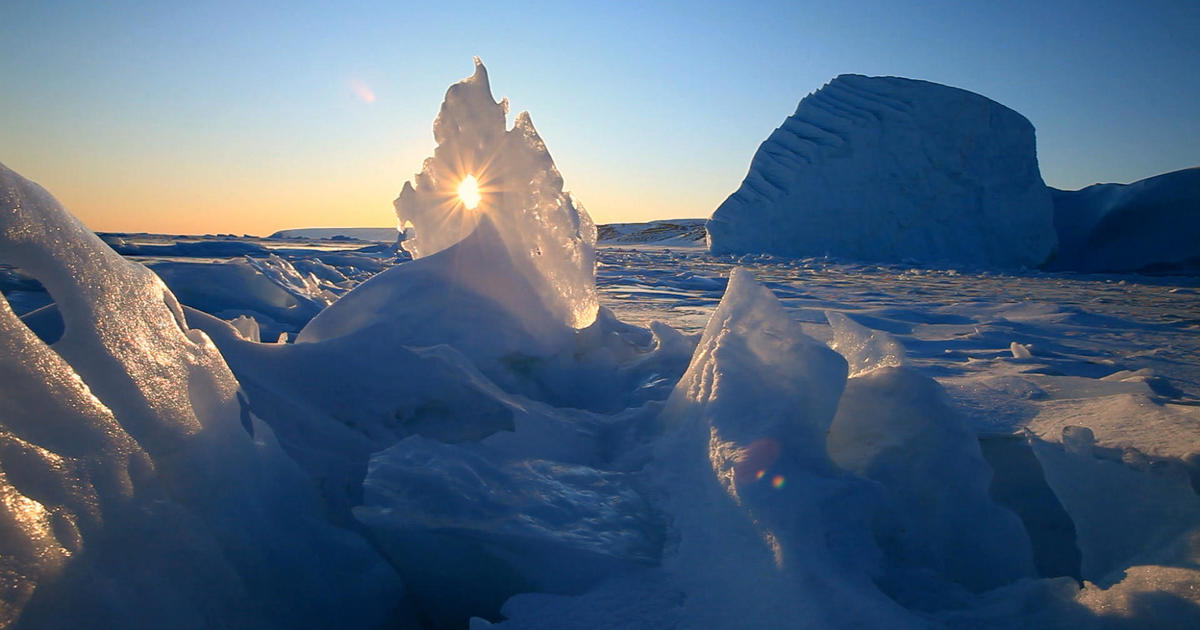
To mark Earth Day, 60 Minutes looked back at some of the climate change stories we’ve reported over the years.
Last year, 60 Minutes reported that scientists were sounding the alarm: we were living in the midst of a sixth mass extinction. American biologist Paul Ehrlich told Scott Pelley that humans would need “five more Earths” to maintain our current way of life.
In 2006, Scott Pelley and a 60 Minutes team traveled to the Arctic to speak with scientists, including prominent climate change expert Robert Corell and glaciologist Carl Boggild, to discover and explain the effects of man on the global climate.
Rising seas, powerful hurricanes and the possible extinction of polar bears are some of the major consequences these scientists warned the world about on 60 Minutes more than 15 years ago.
In 2007, 60 Minutes reported on a new consequence of global warming: living in the era of “mega-fires”. These are “forest infernos,” wildfires about 10 times larger than what the world was accustomed to seeing at the time.
Scott Pelley spoke with Tom Boater, then-chief of federal fire operations, who explained that “ten years ago, if you had a 10,000-acre fire, you were talking about a huge fire …now we’re talking about 200,000 Acre Fires like it’s just another day at the office. »
Pelley also spoke with Tom Swetnam, one of the world’s leading fire ecologists, about how global warming created these megafires and continues to exacerbate them.
“As spring comes earlier due to warming, the snow in these high mountain areas melts and flows,” Swetnam said in 2007. “The logs, branches and needles of trees can all dry more quickly and have a longer period to be dry.
This results in a longer time for fires to break out.
At Greenland’s Petermann Glacier, one of the largest glaciers in the rapidly melting Arctic Circle, the world’s leading climatologists, oceanographers and geologists work only one month a year.
In 2016, 60 Minutes correspondent Sharyn Alfonsi and her team traveled seven hundred miles above the Arctic Circle to the US Thule Air Base in northern Greenland to join these scientists and report on “ one of the most important efforts to study climate change.” “.
In December 2018, 60 Minutes correspondent Bill Whitaker reported on “The Camp Fire,” a massive wildfire that ravaged Paradise, California, in November 2018 and claimed the lives of 85 people. The fire that ravaged this small town in central California destroyed more than 19,000 buildings and homes in the first few hours alone.
The remains of many victims could not be identified with conventional methods such as fingerprints or dental records, and local authorities had to turn to a new rapid DNA approach to victim identification.
Ken Pimlot, former head of the California Department of Forestry and Fire Protection, said years of drought and dry vegetation resulting from rising temperatures were to blame for the raging fires, and the situation would only get worse.
“These fires show no signs of slowing down,” Mr Pimlot said. “There’s no reason for them to stop given the conditions that we’re seeing…we’re seeing now, every year, fires…that are becoming more and more extreme.”
This article was originally published on April 22, 2021.
Grub5





